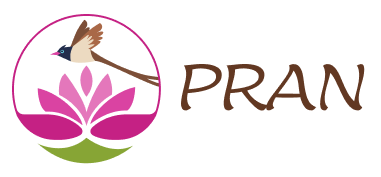Partnership for Research with African Newcomers
Welcome to the Partnership for Research with African Newcomers (PRAN) – a partnership of researchers, professionals, and organizations dedicated to optimizing sub-Saharan African immigrant and refugee (SSAI) settlement and integration. PRAN is facilitating dialogue, pioneering innovative research, developing new tools and resources, charting new training pathways, and raising new questions to improve Canada’s immigration policy, programs, and services.
Our mission is simple:
To support African newcomers to thrive!
Sub-Saharan African Resilience
Sub-Saharan African immigrants (SSAIs), the majority of newcomers from Africa to Canada, are socially diverse. Like many collectivist cultures, they are drawn to community life, summed up by the maximum Ubuntu: I am because we are. Yet SSAIs face significant challenges. Often lumped together with broader immigrant populations or the growing population of Black Canadians, they are poorly understood and underserved by Canadian institutions and service providers. They receive limited support to confront new social and economic barriers posed by anti-Black racism and discrimination. They also lack information and support to reappraise cultural worldviews and social dynamics.


Knowledge Mobilization
Funded by Social Sciences and Humanities Research Council (SSHRC), our mission is to build bridges, understand SSAI diversity, and create real opportunities for success. Led by Dr. Philomina Okeke-Ihejirika, this partnership will develop innovative research methods to better understand and support the communal resilience of SSAIs in Canada. By coming together and sharing valuable insights, we are working hard to shape a brighter future, one in which every African newcomer can thrive.
Land Acknowledgement
The Partnership for Research with African Newcomers respectfully acknowledges that we are located on traditional, treaty and unceded territories as part of Turtle Island, which are still home to many First Nations, Metis, and Inuit peoples who have lived in and cared for these lands for generations. We are grateful for the traditional Knowledge Keepers and Elders who are still with us today and those who have gone before us. As an African organization, we are mindful of the shared experiences of colonization, displacement, and the resilience of Indigenous and African communities alike. We commit to learning from and supporting each other’s struggles for self-determination, justice, and equality. We make this acknowledgement as an act of reconciliation and gratitude to those whose territory we reside on or are visiting.
